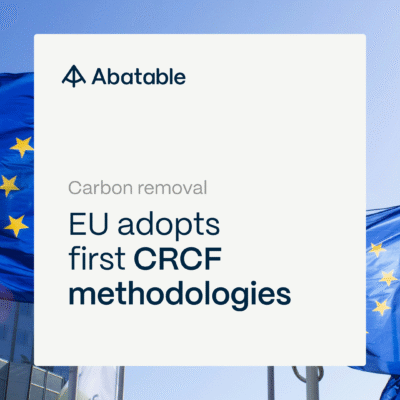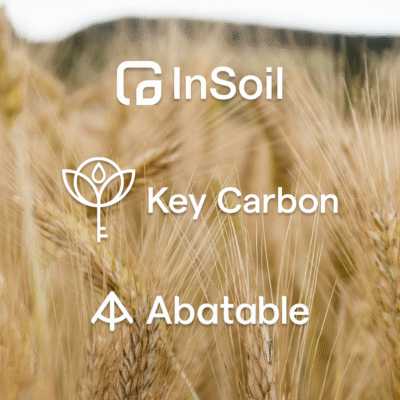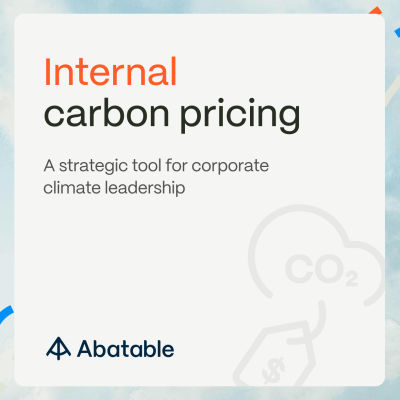The Integrity Council for the Voluntary Carbon Market has released its highly anticipated 10 Core Carbon Principles, proposed as a new global benchmark for high-integrity carbon credits.
While the principles offer useful guidance at the methodology level, Abatable continues to advocate a project-level approach to identify quality and mitigate risk.
What are the Core Carbon Principles?
After three years of development, the Integrity Council for the Voluntary Carbon Market (IC-VCM) has published new guidance on assessing the quality of carbon credits using 10 Core Carbon Principles (CCPs). The CCPs are categorised under three key focus areas including governance, emission impact, and sustainable development. It is hoped the CCPs will strengthen the integrity of the VCM by guiding buyers and investors towards high-quality carbon-credit projects. The aim is to build trust in the market, which should hopefully lead to reduced fragmentation and increased capital flows toward high-impact projects.
Carbon-credit projects will soon be able to apply for a CCP label and only those which meet the criteria set out in the CCPs will be approved. The principles are operationalised by the Program-Level Assessment Framework which provides rigorous criteria and decision tools for each principle. This framework is accompanied by the Assessment Procedure, which sets out more practical elements such as the process for assessing eligibility and how the IC-VCM plan to oversee and enforce the CCPs.
What criticisms have been raised?
While the CCPs have been generally well received, criticisms have been raised as to whether this guidance is too little, too late. Many of the principles presented in the CCPs are concepts that have circulated in the VCM for many years and it has been argued that the CCPs only offer incremental advancements toward building integrity and trust within the VCM. There is also concern regarding the implementation and regulation of the CCPs. For example, questions exist over how reactive the IC-VCM will be to new methodologies and the implications this has on project approval. The IC-VCM has announced its intention to continually improve CCPs over time and we await further guidance, including the Category-Level Assessment Framework, which is set to be released mid-year.
How to implement the CCPs?
For corporate buyers and investors, we believe the CCP label will be best implemented as an initial screening, to sift out low-quality methodologies. However, to identify projects that deliver genuine climate impact, Abatable recommends that buyers and investors consider taking a project-level approach, given the many project-specific factors that affect quality. To take due diligence a step further, Abatable recommends that the quality of project developers also be considered. This is because factors such as the technical expertise, organisational stability, impact ethos, and distribution resources of a developer can greatly impact the overall quality of a project. Applying this level of depth helps to de-risk the carbon procurement process, ensuring that capital is directed towards high-impact projects and offers protection against future liability.
To help navigate the complexity of the market and help corporations meet their climate goals, Abatable has developed both a white paper, discussing our quality framework and approach to assessing projects, as well as a buyer’s guide, designed to help companies build a science-aligned procurement strategy.


















































































































